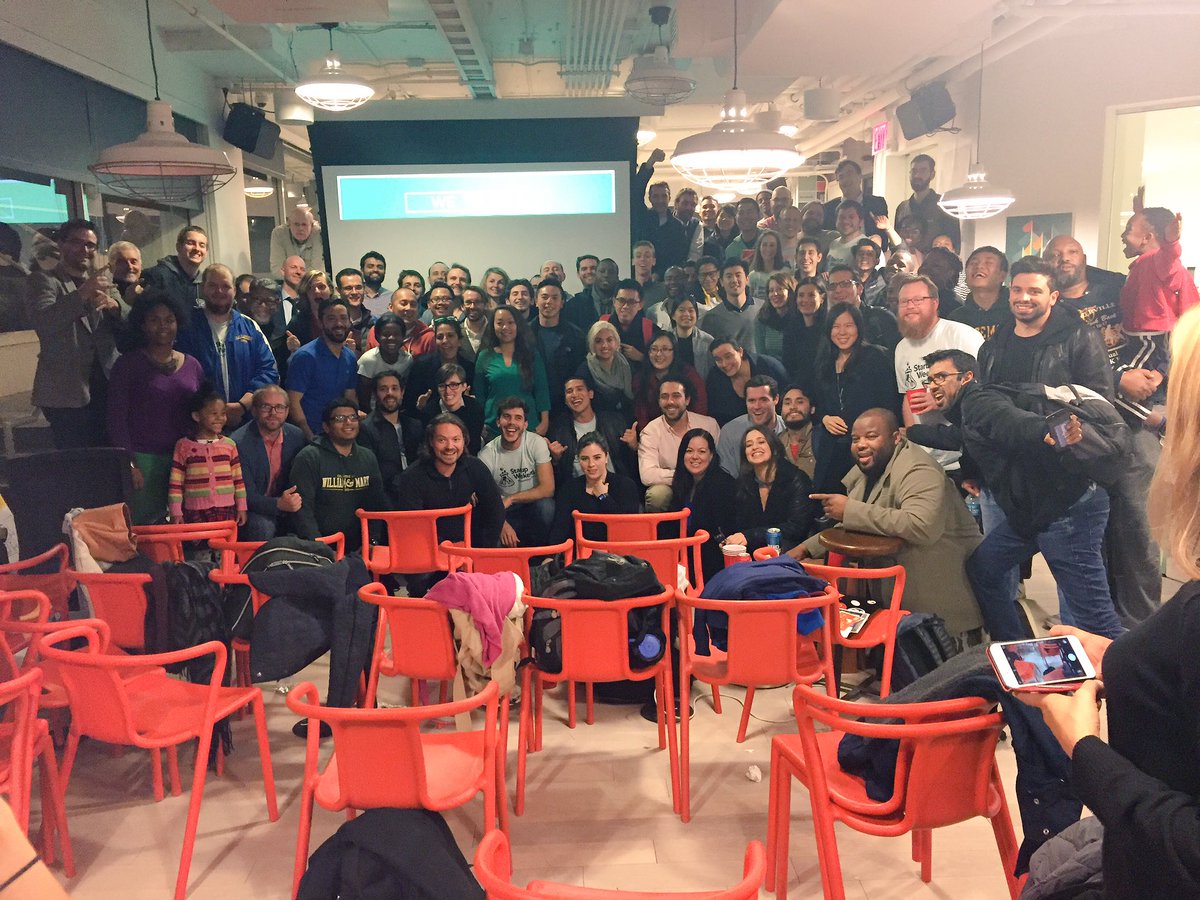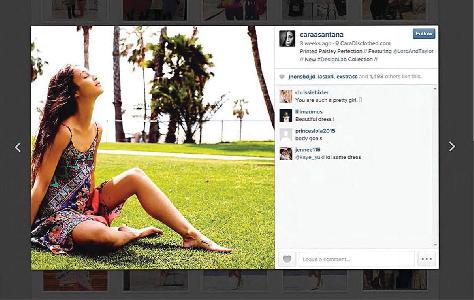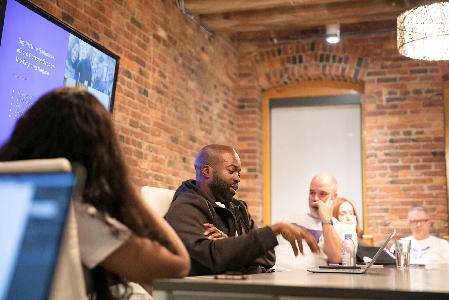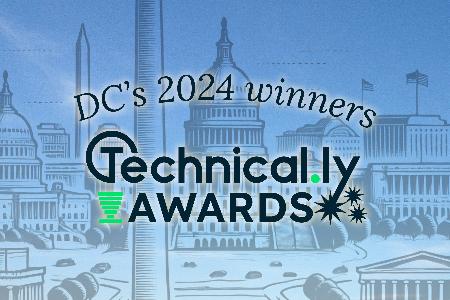The most recent Startup Weekend held in D.C. had ice breakers, pitches and demos. It featured ideas taking form and entrepreneurs finding inspiration. In other words, it had all the regular component parts. But in addition to all this, the Nov. 11-13 weekend offered something new — at attempt at bridging the divide between D.C.’s hearing and deaf communities. It was the first Startup Weekend in the country to include deaf participants, organizers said.
It all started, organizer Steven Rodriguez said, when the event organizers got an email from Gallaudet University asking if it was possible for some deaf students to join the weekend. This request opened up a whole host of challenges, Rodriguez knew, but given his background in disability rights, “it was something I was excited about,” he told Technical.ly.
His co-organizer, Lindsey Goetschius, carried more apprehension. “I was a little nervous,” she admitted. “I wanted to make it the best possible experience. I wanted [the deaf participants’] experience to be as similar to someone who is hearing as possible.”
And, well, because the format of Startup Weekend is created with hearing individuals in mind, both organizers knew this would take a little reworking. For starters, they’d need interpreters.
So Rodriquez reached out to some of his contacts working in accessibility, and eventually the team got in touch with the D.C. Office of Disability Rights (ODR). The ODR agreed to organize half of the interpreters necessary for the weekend with sponsorship from Deputy Mayor for Greater Economic Opportunity Courtney R. Snowden. Gallaudet brought the other half.
Thank you @GallaudetU & @DCGovTwit for making it possible to have these wonderful #entrepreneurs share this journey. @DeafHustle pic.twitter.com/QvMYw42ga1
— Techstars Startup Weekend D.C. / M.D. / V.A. (@TSWDMV) November 14, 2016
Working quickly at the last moment, the organization team also managed to bring on some mentors and a judge who are deaf. And the weekend’s facilitator was all about it — Daniel Johnsen told Technical.ly this was exactly the kind of challenge and learning experience he gets excited about. “This has been something on my radar,” he told Technical.ly. “I thought it would be highly interesting to bring this programming to the deaf community.”
Now, he had a chance.
###
When the weekend kicked off on Nov. 11, Keith Doane was ready to go. The Gallaudet University grad student and first-time Startup Weekend participant even had an idea — a coffee, beer and wine bar with a bicycle shop attached to combine his love for bicycling and coffee — but he doubted whether anyone would want to join. Still, Doane told Technical.ly as we chatted over video relay, he made his pitch.
In the end, five others signed on to Doane’s idea. Three were deaf like him, and two were hearing.
Over the course of the requisite 54 hours, the team explored the coffee shop idea, which they ended up turning into a mobile bicycle coffee cart for the final pitch, and learned about each other. “It was just a great trading of cultures within the group,” Doane said, noting that the two hearing group members were from Argentina and thus already bilingual, which made communication extra easy. “It was such an interesting and positive experience.”
Asked whether he plans to continue developing the idea further, Doane said he’ll have to wait until he graduates in May. For now, he’s a little busy. “But who knows,” he said, “maybe it is something I will do. I can see this for myself. I really can.”
###
In the end, 20 of the weekend’s 90 participants were deaf. Six different project groups featured a mixture of hearing and deaf participants, and throughout the weekend, there were consistently eight to 10 interpreters around. Rodriguez is careful to point out that none of this would have been possible without the practical support, and sponsorship, of Gallaudet and the D.C. government.
Chatting with Rodriguez, Goetschius, Johnson and Doane, I get the sense that everyone involved really learned something during the weekend of Nov. 11-13 — be it about what inclusion really looks like or their own entrepreneurial capacities or, for the hearing participants of Doane’s group, a little American Sign Language. And that’s a beautiful thing.
Before you go...
Please consider supporting Technical.ly to keep our independent journalism strong. Unlike most business-focused media outlets, we don’t have a paywall. Instead, we count on your personal and organizational support.
Join our growing Slack community
Join 5,000 tech professionals and entrepreneurs in our community Slack today!




